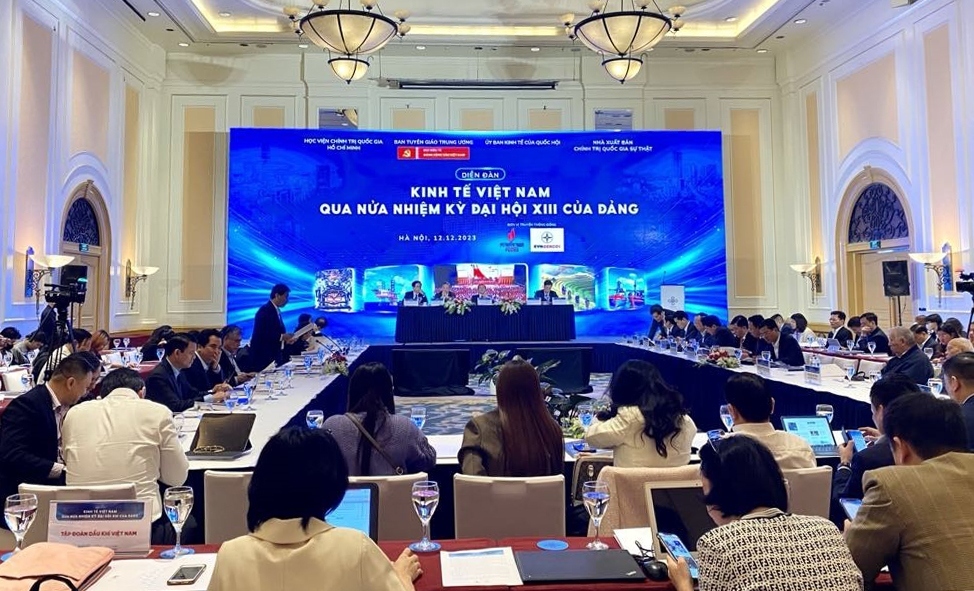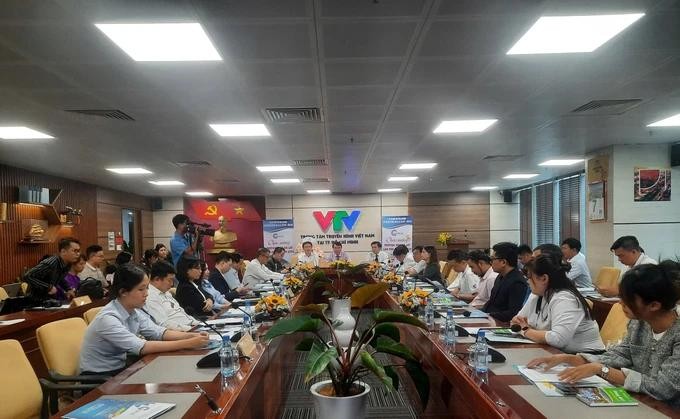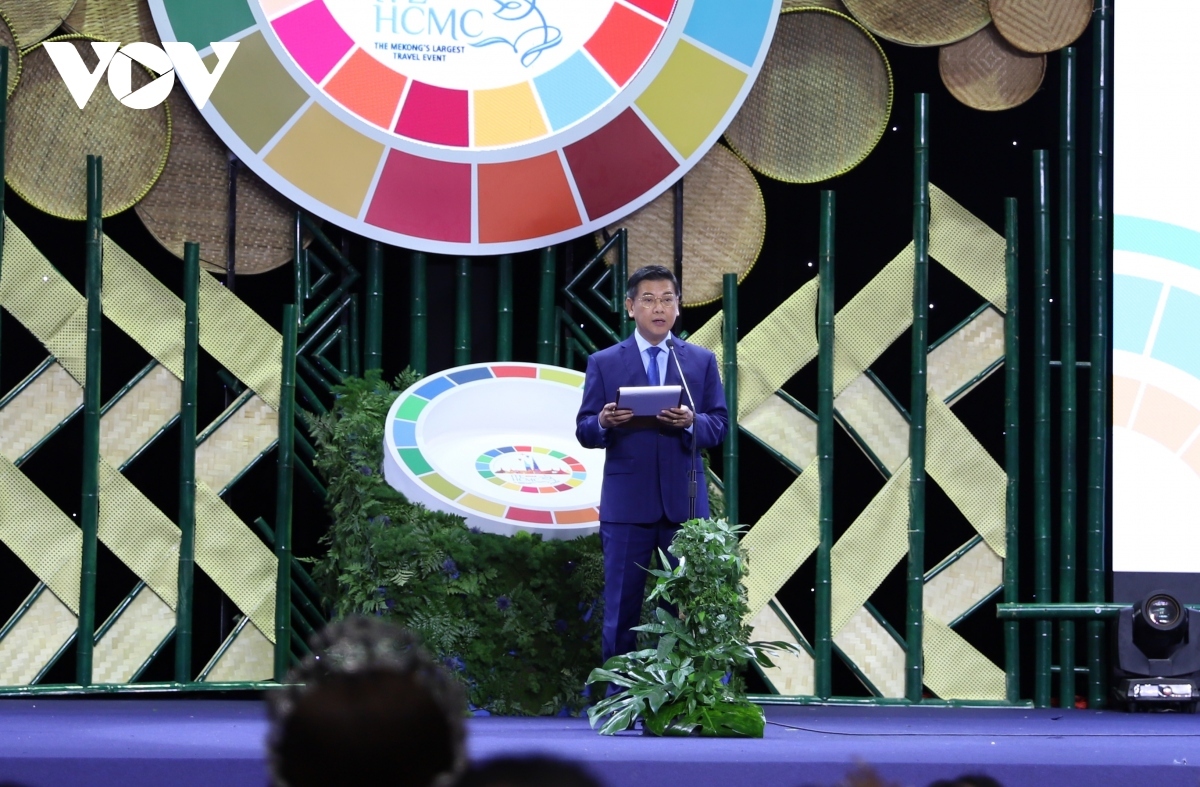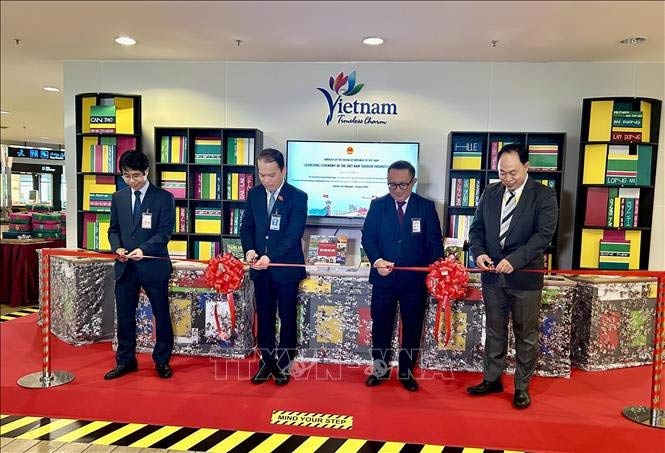VOV.VN - The Vietnam Economic Forum was held on December 12 in Hanoi to discuss the Vietnamese economy at the half term of the 13th National Party Congress.
At the forum, experts pointed out that the prolonged COVID-19 pandemic has caused severe consequences such as disruptions occurring in supply chains, rising inflation, high interest rates leading to a decline in growth, and increased risks in financial and currency markets.
Furthermore, strategic competition between major countries and the Russia-Ukraine conflict have also had a profound impact on political, economic, and social security on a global scale.
To cope with the global uncertainties, during the first half of the term of the 13th National Party Congress, a total of 36 Resolutions and 54 Conclusions were issued, including several resolutions relating to accelerating economic development and promoting economic recovery.
Associate Professor, Vu Trong Lam, director and editor-in-chief of the National Political Publishing House Truth, emphasised that the implementation of economic recovery is the major task of the Party in the first half of this term.
He cited Vietnam as being a bright spot in the "gloomy picture" of the wider global economy. Specifically, last year saw the country’s GDP growth reach 8.02%, the highest increase in the 2011 to 2022 period.
Total export and import turnover hit a record of US$732 billion, duly representing an increase of 10% compared to 2021.
Vietnam continues to be among the group of 25 leading economies in the world in terms of trade, he said, adding that the country’s GDP growth will reach over 5% this year despite global uncertainties, a level that remains high compared to many countries around the region and throughout the world.
From now until the end of the term, experts underlined the need to make a change in terms of mindset, synchronously revise institutions for sustainable economic development, innovate growth models, restructure the national economy, accelerate industrialisation and modernisation, and promote the agricultural and rural economic development.
Think tanks also underlined the importance of further improving the efficiency of public investment, removing bottlenecks faced by businesses and promoting digital transformation, with a specific focus on digital society, the green economy, and circular economy in the time ahead.















